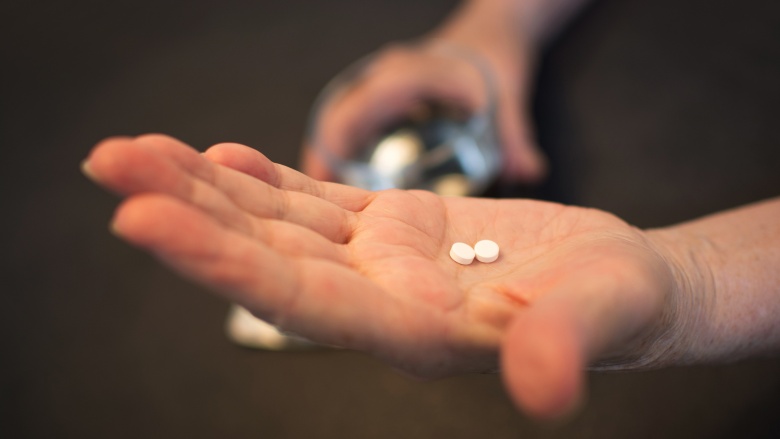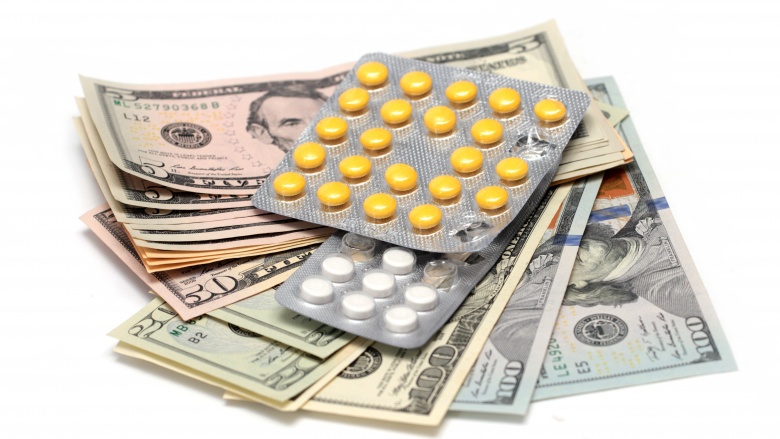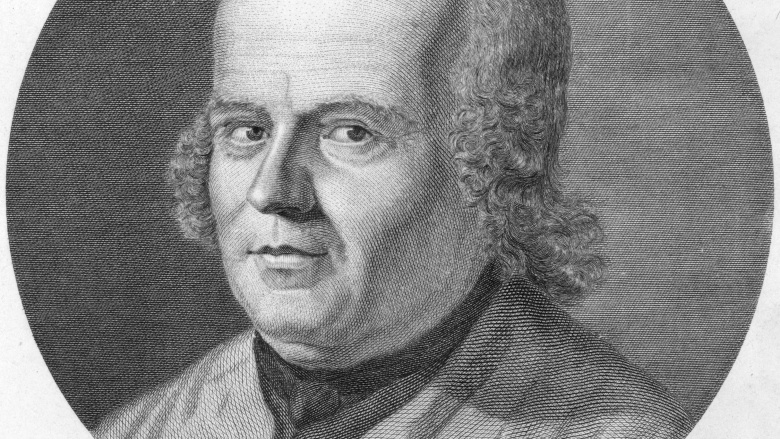Bizarre Things People Believe About Homeopathic Medicine
Homeopathy took a hit recently when the Federal Trade Commission (FTC) ruled that homeopathic medicine must say, right on the package, that they're products have no scientific backing, and are "based only on theories ... from the 1700s that are not accepted by most modern medical experts." In other words, they're legally required to admit their product is almost certainly bunk.
Of course many people will still go on believing in the stuff, just like they bafflingly also believe that ...
Homeopathy isn't a placebo
The placebo effect arises when a patient believes the treatment they're receiving is more effective than it actually is. Homeopathic medicine has been found to have no basis in science or modern medicine, so any positive effects from treatment have been attributed to both the placebo effect and the patient's natural healing ability.
Homeopathic practitioners adamantly oppose the idea that their treatments are effective only via the placebo effect, however. Some studies have been published determining the efficacy of the treatments, but these pale in comparison to the overwhelming amount of studies calling homeopathic medicine a pseudoscience.
For the people who ascribe to homeopathic treatments, the FTC's decision to force the homeopathic industry to admit their — to put it mildly — unofficial nature won't have much of an affect on their decision to continue with their treatments. A smoker sees the Surgeon General's warning on every pack, but completely disregards it, after all. The FTC's real hope is that the kid who is thinking of smoking (or homeopathing) for the first time might see that warning and think twice.
The lower the dosage, the higher the potency
The basis of all homeopathic remedies is nanopharmacology, which is also what makes it so controversial. Nanopharmacology deals with pharmaceutical remedies on the extremely small scale, meaning all homeopathic remedies consist of diluted substances so watered down, they're essentially nonexistent, except as maybe a sugar pill/globule with no effect whatsoever.
To get an idea of how much something is diluted, most practitioners suggest repeating the diluting process 60 times, called 30C. As The Guardian explained, "A 30C homeopathic preparation is a dilution of ... 1 in 1060, which means a 1 followed by 60 zeroes." You would have to give two billion doses per second, to six billion people, for 4 billion years, to deliver a single molecule of the original material, which essentially renders the substance inert.
You can, of course, purchase products with a dilution of 100C, but there's no chance of actually having a remedy with a single atom of the original substance in it. People still believe in this practice actually treating their illnesses, but it's highly improbable that a substance diluted down to the atomic level could benefit, hurt, or do literally anything to a person, which is why most people consider it to be completely safe.
Thing is, that's not always the case.
Homeopathy is safe
The harm in homeopathic medicine is most prevalent when used as an alternative to treat something that actual medicine can also treat. There are hundreds of cases where a person has died as a result of avoiding medical treatment and opting for homeopathic medicine instead. In 1996, Janez Podgoršek began homeopathic treatment to prevent malaria prior to a trip to Africa. When Podgoršek returned from his trip with malaria, he continued to seek homeopathic treatment for the disease. Podgoršek, unshockingly, died and his homeopathic physician, Darja Eržen, was held responsible and tried for his death.
Many other examples involve children who were treated homeopathically, due to the insistence of their parents. Back in 2010, the FDA warned parents about the potential safety risks of a homeopathic medicine sold by Hyland for the treatment of teething in infants. It was found that the tablets contained traces of belladonna, which is also known as deadly nightshade. Up to 10 children may have died as a result of these tablets—all of which were recalled and taken off the shelves. Teething can be painful for kids, but a good-old fashioned teething ring (or your phone, if the tyke has anything to say about it) is still the best medicine.
Besides, even if you believe in homeopathic medicine, when Western medicine is capable of treating whatever you got, why not double your chances of survival and try both?
Treating symptoms is better than treating the disease
The principal core of homeopathic medicine is that "like cures likes." Unlike Western medicine, which builds up antibodies via agents identical to the disease-causing agents (ie, for the influenza vaccine a type of influenza is administered), homeopathic medicine uses stuff that treats the same symptoms, as a means of promoting healing in the body. So if you have typical flu symptoms, you'd take something that supposedly treats similar symptoms, like Oscillococcinum.
Oscillococcinum, for the record, contains extracts of the heart and liver of the Muscovy duck, hardly a proven cure. It's also diluted 200 times, which means that any Oscillococcinum you might ingest contains approximately 1×10−400 grams of duck—that's less than the weight of an individual proton. So, if you're thinking that Daffy's heart and liver might be an odd cure for the flu, remember that there really isn't any in the pills they're selling ... unless you're concerned with the atomic weight of your medicine.
Homeopathic medicine is cheaper than Western medicine
Because homeopathic medicine is available over-the-counter and doesn't require a prescription from a doctor, many people believe it cheaper than Western medicine. And sure, you won't rack up tens (or hundreds) of thousands in homeopathic treatment like the hospital might charge you, but you will end up spending quite a lot of money treating your body, with a high probability you'll still end up in the hospital regardless.
It's estimated that 200 million people use homeopathic medicine each year, and that ends up amounting to a lot of money. In the United States alone, costs of homeopathy reached as much as $6.4 billion in 2012. The industry has continued to grow since that time, and the companies producing homeopathic products rake in millions of dollars.
But what of the cost per person? Well, that's pretty terrible too. The first time a person visits a homeopath, they can expect to pay between $100 and $300. Follow-up visits typically cost between $50 and $100, and you can already see how that can add up mighty fast. Plus, while individual medicines are usually inexpensive (a typical over-the-counter homeopathic treatment might run between $4 and $10), none of them are likely to be covered by any insurance program, so it will all be out-of-pocket, as will all those doctors' appointments.
It's based on ancient medicine
For some reason, a lot of people believe the homeopathic remedies they're receiving are based on some ancient medical practices from a far away land. That couldn't be further from the truth — instead, the concept of homeopathic medicine goes all the way back to 1798. Homeopathic medicine is younger than America.
A Dr. Samuel Hahnemann abandoned his medical practice in 1784, frustrated because he felt that modern medicine often did more harm than good. He would usually cite the practice of bloodletting as an example (remember, this was the 18th century). After 14 years of experimenting with alternate treatments on himself, the healthy man testing treatments for sick people on himself came to the conclusion, "That which can produce a set of symptoms in a healthy individual, can treat a sick individual who is manifesting a similar set of symptoms." This was the basis for what would become "like cures like," the basis of homeopathic medicine we debunked earlier.
He continued to develop his practice, and finally coined the term "homeopathy" in an 1807 essay for Huefland's Journal titled "Indications of the Homeopathic Employment of Medicines in Ordinary Practice." Homeopathic medicine has been in existence ever since.
Pretty much anything can be turned into a potent cure for everything
We already know about the dilution process and how the smallest, miniscule amount of something somehow makes it more potent in homeopathic medicine, but we haven't really gone into the ingredients. What kind of stuff is being diluted down to the atomic scale to help cure warts, cancer, and malaria? Pretty much anything you can think of, actually.
The common daisy is used to treat cuts and wounds, while the wild cucumber can handle diarrhea. Witch-hazel will handle hemorrhoids and varicose veins, while duck heart and liver tackles the flu. But don't freak out if you can't find any of these. Stroll into your back yard and find some poison ivy, if you're suffering from joint pain — while you are there, see if you can find a Bushmaster snake, whose venom can supposedly treat a variety of complications and chronic problems. (Don't actually do this, for in reality they will simply bite you until you are dead.)
There are hundreds of ingredients with thousands of uses, like mercury for chronic ailments and even crude oil for your eczema or psoriasis. While many of these substances are inert on their own, some can be problematic if taken in high doses (or, in the case of mercury, low doses). Fortunately, for the folks who use them in homeopathic medicine, the dosages are so diluted, they're essentially absent, and incredibly large quantities would need to be ingested to cause any significant harm.
It requires years of study and discipline to become an expert
So, you want to become a homeopathic medical practitioner and make your own remedies or even prescribe them for others? If you thought it would take eight years of medical school and an internship, like an MD, you are mistaken! Pretty much anyone can grab something, dilute it, and call it a homeopathic remedy, since it's totally unregulated.
If you truly wish to become a homeopathic practitioner, you can do so via a number of online courses. The average cost for materials and enrollment will run anywhere between $5,000 and $10,000, depending on the company you take the classes with. When you complete the program (at your own pace), you'll receive a certificate and can go on to practice homeopathic medicine ... unless you decide to skip all of that, watch a few videos on YouTube or read some articles online, and just practice it! You'll end up saving a ton of money on classes and a certificate, which would amount to little more than a receipt for money you'll sorely miss when the hospital bill arrives in the mail.








